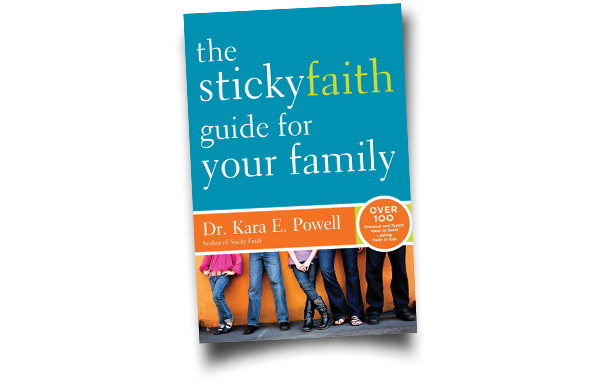Now that our kids have been in school for a while this fall, we are starting to see grades and test scores. While there’s much to celebrate, they’ve also had assignments not go as well as they’d hoped. Maybe you can relate.
As parents, we have a unique opportunity in the moment we first see the less-than-desirable grade. Especially when our child is watching.
Chances are we’re disappointed. But most of the time, our kids are also disappointed. In fact, even when they don’t show it or seem not to care, typically teenagers feel the disappointment—and often shame—of the failure (whether “failure” to them means an F or a B+). Deeply.
What young people need in the midst of their failures are empathetic adults. Not harsh judges (“What on earth happened here?”). But not cavalier bystanders either (“Oh well, it was probably the teacher’s fault.”) Instead, they need an adult willing to be present and listen (“Looks like this one was hard, huh?”) and eventually offer support (“What kind of help do you think you need right now?”)
Empathy starts with you—and your personal heroes.
In my life, when things don’t go as I hope, my favorite people have one thing in common: they make me feel better about myself. They understand the ups and downs of my journey, and through it all, they are on my team.
Of course sometimes I need hard truth-telling or a kick in the pants, too, but rarely does advice work well before empathy. As one of my heroes-from-a-distance, Brene Brown, explains, we experience empathy when someone climbs down in the pit with us and says, “I know what it’s like down here. And you’re not alone.” Or better yet, sometimes they say nothing at all for a while. What makes something better isn’t typically our actual response; it’s our connection. My real-life heroes are like that, too. I’m guessing the same is true for you.
Unfortunately, I sometimes miss the connection between what I need and what my kids need. While in many ways adult needs and adolescent needs are very different, we all need empathy when we’re disappointed and when we fail. We all want to be understood and heard.
We all need to know we’re worth being understood and heard.
That theme was echoed in our Growing Young research. In our study of thriving churches, one of the key reasons they were appealing to today’s young people was their ability to empathize with them—in particular with the difficulties of growing up in today’s world.
How to show empathy to your kids daily
The young people in your home need adults around them who understand their complex world and are willing to walk with them through its ups and downs.
In particular as my own three kids navigate adolescence and eventually emerging adulthood, I want them to sense my empathy. I want them to know that I’m not “feeling against” their choices; I’m “feeling with” them.
I want my kids to know that I’m on their team in all the different rhythms of their day.
In the morning by the way I wish them “good morning” when they wake up. And let them know I’m praying for them. And am optimistic about what lies ahead for them.
In the afternoon through a warm greeting when they walk in the door. And asking open-ended questions about their day as I’m driving them to their various activities. And listening when they had a tough day or struggle with a friend. And not pushing them to talk when they clearly don’t want to.
Related: How to Talk to Boys and How to Talk to Girls
In the evening by not rushing through our bedtime rituals (of everything I’ve written so far, this is the toughest for me; the later it gets, the less patient I am). And closing our day by asking them how I can pray for them.
What else do you do to show your kids you are on their team? Get more ideas with The Sticky Faith Guide for Your Family.







 Dr. Kara Powell is the Executive Director of the
Dr. Kara Powell is the Executive Director of the
Leave a Comment